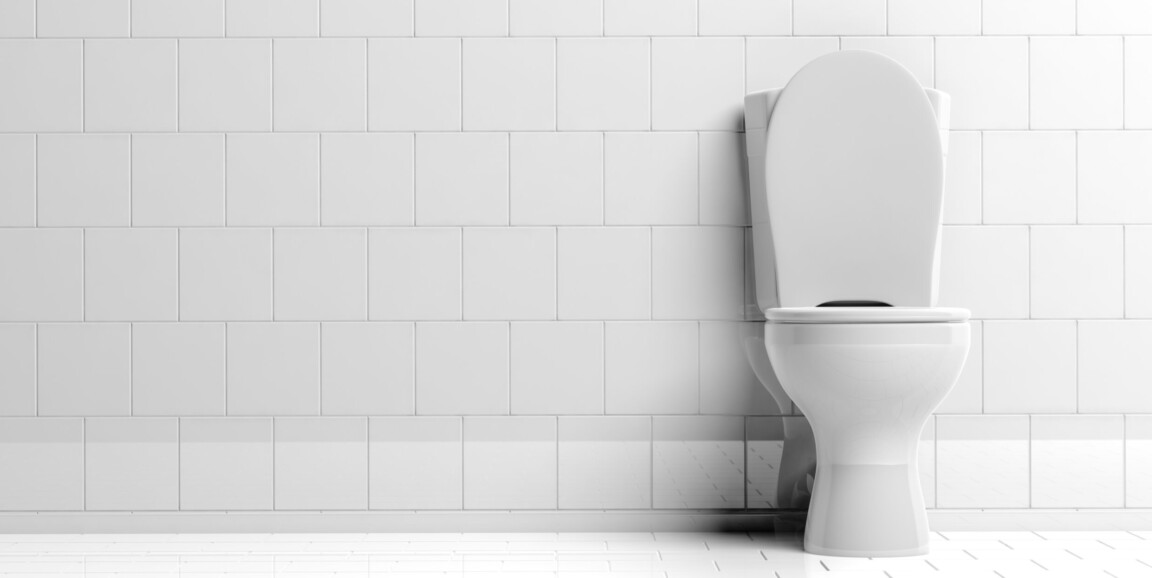This story was updated April 24, 2023
There isn't much about my bathroom business that I want others to know about. But I'd conquer my squeamishness if it meant catching a disease early and putting a stop to it.
That's the premise of the smart toilet, which is fitted with technology to interpret the data that's dripped, dumped or otherwise flushed to glean insights into health. Urine flow a bit light? That might indicate a problem with the prostate. Blood in the urine? That suggests a urinary tract or kidney infection. Different shapes and textures of waste can point to gastrointestinal problems. The smart toilet can even detect specific molecular signals that flag certain types of cancer or infectious diseases, such as COVID-19.
There's a lot of potential in the idea, even though its data source is something we think so little of. "Toileting habits are especially sensitive to talk about," said Seung-min Park, PhD, an instructor of urology at Stanford Medicine, who worked with the late Sanjiv Sam Gambhir, MD, PhD, to develop the smart toilet project.
Park now collaborates with professor of urology Joseph Liao, MD, and Nicole Martinez-Martin, JD, an ethicist and assistant professor of pediatrics. "There are big psychological barriers to advancing smart toilets. People think it's too dirty, or they feel uncomfortable about it -- it's not socially acceptable to discuss, especially at work."
The idea of a smart toilet isn't new -- and some have even become commercially available. Science fiction novels, such as Beyond the Blue Event Horizon, have made reference to them since the 1980s. As data interpretation and biomarker monitoring technology -- two factors the smart toilet's success depends on -- advance, its promise grows.
There are ethical and legal considerations, as well as public acceptance, to consider. As Park refines the toilets' disease-detecting capability, he's pursuing a parallel path to decrease skepticism and increase trust -- an admittedly tall task as concerns of data privacy rise.
He hopes to demonstrate that smart toilets have a powerful, yet passive, ability to help people stay on top of their health and securely share the data with their doctor. That, he knows, can happen only to the extent that users feel comfortable installing the smart toilet into their homes -- and possibly other public places. For those reasons, he's exploring the ethical, legal and public health ramifications of a techy toilet that's poised to detect health information ranging from pregnancy to cancer.
Could the smart toilet leak?
Leak data, that is. It's a serious question: Could someone hack a smart toilet and get personal health data? If so, they could learn if a smart toilet user was pregnant, had cancer or was taking specific medications, for example -- information most people would likely want kept private. Technically, almost any data transmitted online is hackable. But Park says that the data from a smart toilet would be held to the same storage and privacy standards as the health data collected at a doctor's office.
He's also been asked about the potential for police to track drug usage. That, to him, would be crossing boundaries. The data from an individual's home should be accessible only to their health care provider, in which case it would be protected by privacy laws. If illicit drugs were detected in someone's urine, that person could seek care or recovery help from their doctor without legal ramifications -- just as if they had reported drug use during a doctor's appointment.
"I often get asked about consent -- should a smart toilet user actively consent every time they use the bathroom?" said Park. That defeats the purpose of passive collection, which is key to the smart toilet's success, as Park anticipates people would get tired of always having to opt in. Instead, he suggests a one-time, blanket consent that users agree to, and that they could revoke at any point.
"The smart toilet would need to be regarded as a medical device for the initial deployment, rather than a commercial product," Park said. "Privacy has to come first."
From (very) private to public
One smart toilet can provide a host of data about an individual or a family, but what about larger groups? An entire city, for example.
"That's the next phase of this research that we're really excited about -- smart cities," said Park, who is working with Stanford University's civil engineering department and the Stanford Center at the Incheon Global Campus, in South Korea, on the concept. The smart toilet could be a perfect fit for a futuristic smart city, in which advanced technology makes city living more efficient and convenient, such as buildings that use the sun to monitor and regulate their own temperatures.
Any public information gathered from the smart toilet would need to be anonymized and protected so that organizations or agencies -- government or otherwise -- could not access that level of detail. Park sees a network of smart toilets as a powerful way to monitor public health concerns, such as emerging infectious disease outbreaks.
He and his collaborators are also thinking about installing the smart toilet in homes of clinical trial participants to help answer research questions. They're exploring its use in trials that test treatments for irritable bowel syndrome or therapies for healthy pelvic floors, which help control urination, among other things.
"We're seeing opportunities to use the smart toilet in broader public health and research settings, so as we think about how to advance the technology, we also have to spend equal time thinking about the ethical and legal issues -- and people's acceptance of the technology," he said.
Photo by Africa Studio




